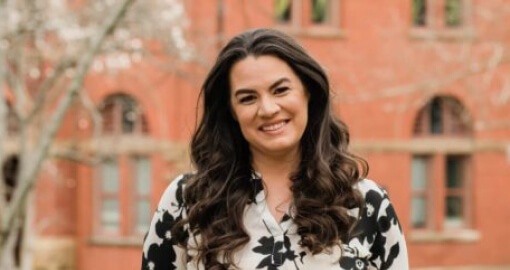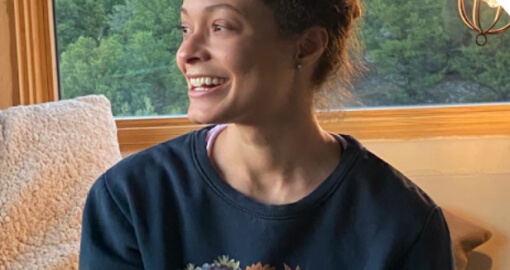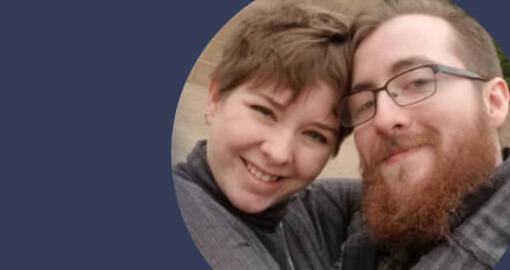Written by Shannon,
Brightside Health
5 Minute Read

Medically reviewed by:
Jen Miller, PMHNP-BC
PMHNP Director
10 Minute Read

Feeling depressed is a lot more than just being sad. It’s also losing your zest for life, the inability to complete the simplest tasks, and shutting out friends and family.
While there may be times when you feel like having a lazy Sunday or you just don’t have the energy to go out, anhedonia is a more significant disinterest in almost all pleasurable activities, and it’s one of the most common symptoms associated with major depression.
Depression is marked by a reduced ability to experience pleasure. TV shows, foods, friends, or family that were once exciting can become meaningless and dull.
Depression is a journey that takes time to overcome, but with the right treatments, you can start feeling pleasure in the activities and people that mean so much to you. Let’s work to understand anhedonia and look for some ways to treat it.
What is anhedonia?
Anhedonia is a loss of interest or pleasure. While it’s most extensively studied in major depressive disorder, it’s also a prominent symptom in other disorders such as schizophrenia or substance use disorders.
This loss of pleasure can take many forms. But generally speaking, the symptoms of anhedonia are:
- Social withdrawal
- Negative feelings toward yourself or others
- Reduced nonverbal and verbal expressions
- A tendency towards exhibiting fake emotions (pretending to be happy)
- Lack of interest in physical intimacy
- Persistent physical problems such as sickness
What causes anhedonia?
People living with depression have lower levels of the neurotransmitter serotonin. Serotonin is a neurotransmitter, or key hormone, for your body’s ability to regulate mood, sleep, appetite, and even bone health. Lower levels of serotonin often results in decreased feelings of pleasure and arousal.
Conversely, excessively high levels of serotonin may have a similar effect. This is because overactive serotonin activity can lead to under-active dopamine activity, which is another hormone that helps regulate things like pleasurable reward, attention, and mood.
Family history of depression or schizophrenia may also increase your risk for developing anhedonia.
What are the effects of anhedonia?
If left untreated, it may have some negative secondary side effects.
For one, social withdrawal for long periods of time may cause anxiety when you do become exposed to social situations. It may also alter the relationships that you have with other people around you.
For physical anhedonia, loss of appetite may lead to malnourishment or develop into an eating disorder over time. Likewise, a lack of movement and physical activity may cause adverse physical symptoms such as weakened immune system or weight gain, or contribute to increased symptoms of anxiety and depression.
How is anhedonia treated?
Since anhedonia may be a symptom of depression, such as major depressive disorder (MDD), treatment methods including lifestyle adjustments, medication, therapy, or a combination of all to help improve symptoms.
If you’re experiencing anhedonia, or other symptoms of depression, seeking help is the first step towards successful treatment. Once a licensed provider has diagnosed anhedonia, you can start your journey towards recovery.
Therapy
There are several different forms that therapy can take, one of the most common is cognitive-behavioral therapy, or CBT.
CBT treatment often involves efforts to change your pattern of thinking and therefore alter your behavior. A therapist may help you learn to recognize and reevaluate distortions in thinking, develop a greater sense of self-confidence, and develop skills to cope with difficult situations.
Taking the first step towards treatment is a brave and respectable first step towards bettering your health. Our therapists will work with you to build skills that’ll help you feel better with a personalized treatment plan. We’ll support you every step of the way, pushing forward when you’re ready and applying the brakes whenever you need.
Medication
Depression is commonly treated with antidepressant medication such as selective serotonin reuptake inhibitors (SSRIs).
SSRIs work by blocking the reabsorption of serotonin into the neurons. This makes more serotonin available for transmission between neurons. Recall that serotonin can help regulate your mood, so these can bring a more balanced feeling of pleasure into your life.
There are many different types of antidepressant medications, but common ones include sertraline (Zoloft), fluoxetine (Prozac), or escitalopram (Lexapro). Our body chemistry and genetics are different, so it may take a period of medication matching to find one that works right for you.
Participating in evidence-based therapy like cognitive behavioral therapy, as well as being treated by a psychiatric provider with medication can be one of the most effective ways to help you feel like yourself, faster. Medication and therapy together can give you up to a 60% better chance of recovery as opposed to one treatment alone.
In summary
Anhedonia is the lack of interest or pleasure in regards to social situations or tactile activities. It’s a common symptom of major depressive disorder that often looks like social withdrawal, reduced verbal or nonverbal expression, general disinterest, and fake joyful emotion.
It may be caused by a lack of serotonin, which helps to regulate mood, appetite, and sleep. When serotonin levels are low, you may feel little energy for social interaction. When levels become too high, your body may plateau and become less excited by simple pleasures.
Untreated anhedonia can cause anxiety in social situations or negative physical effects. However, anhedonia and depression are highly treatable with the right care. The most effective treatment is a combination of psychotherapy and medication.
Mental illness is never something to be ashamed of, and taking the necessary steps to get you back on track is a giant accomplishment. When you’re ready, our licensed therapists are ready to help you throughout your journey.
Click here to get started with your personalized treatment plan.


















